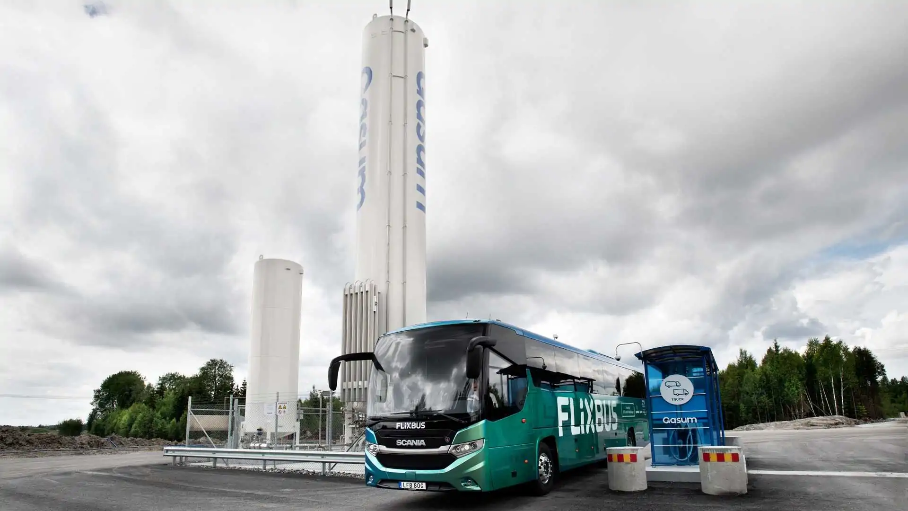
The German low-cost transport company Flixbus has recently announced the birth of a new partnership with Scania and Gasum to spur the use of BioLNG fuel for their vehicles. The first vehicle assigned to passenger transport for long routes which will be modified to accommodate the use of BioLNG, will operate on the Stockholm-Oslo route.
The Head of Scania's Customer Unit, Johan Ekberg, has underlined how this new technology is, at the moment, “the most sustainable solution”. As a matter of fact, the use of BioLNG brings many advantages. The first is that by being a renewable, locally produced, fossil free fuel, it reduces dramatically CO2 emissions (almost 90% less if compared with fossil fuels). BioLNG not only reduces CO2 emissions, but it also reduces nitrogen oxide (NOx) while maintaining unchanged the engine’s performances and while creating new job opportunities.
As stated by Jonas Strömberg, Scania’s Sustainability Director, bioLNG could be defined as the Swiss Army Kinfe of the circular economy. To this day, bioLNG occupies 17% of natural gas market in the EU but the fact that this percentage is rapidly increasing in a short span of time gives us the possibility to be optimistic towards the decarbonization of the heavy transport sector. From what was revealed by Jonas Strömberg, if the positive trend will keep on improving, by 2025 half of the fleet of heavy transport vehicles in the EU will be fuelled by bioLNG. Moreover, the availability of bioLNG will rapidly increase in Europe, considering the decision of the EU to create fuelling stations along the most important European road networks.
Source: Trasporti-Italia - Omnifurgone
 EN
EN  it
it

